She is not a statistic—she has a story
*warning sensitive content
In a tiny dark concrete room in Makwanpur, Nepal sits a woman wearing a beautiful floral dress with a red shawl. Her posture and eyes reveal a palpable sense of pain. *Setimaya was just 19 when she was trafficked—30 years later, she is ready to tell her story.
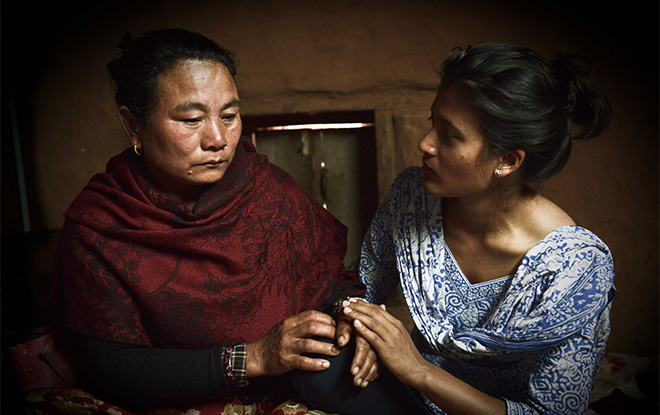
Setimaya with a Share and Care social worker as she sits down to tell Nikki her story.
Kiwi photographer, Nikki Denholm, has worked with Tearfund capturing images of human trafficking survivors for the past six years. With her social worker’s support, Setimaya shared her dark past with Nikki. “Setimaya was deeply traumatised by her trafficking experience. She wanted to tell her story in the hope it would raise awareness and prevent other girls from being trafficked,” says Nikki.
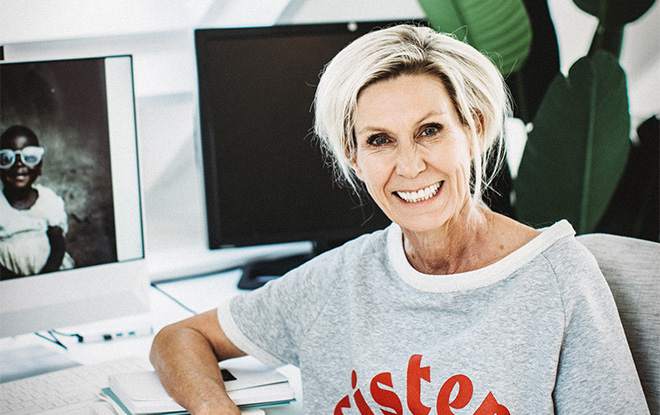
Nikki says there's nothing more important than giving these women a voice.
“I was from a very poor family, they married me off at 16-years-old and I had my son at 17,” says Setimaya.
“My husband hit me and abused me. I was in a terrible state, I didn’t have proper clothes or enough food to eat,” Setimaya told Nikki. Then someone came into her life that loved her and cared about her, she felt she had found a true friend.
“My father-in-law brought a new wife home. The sister of the new wife loved me, she was like my sister and she said she’d take me back to my parent’s home. The plan was to stay just one night at her place first.”
But something terrible happened that would change her life.
“She didn’t take me to her home. She took me to a town on India’s border and rented a room. A lady I didn’t know came into my room, and I was left alone with her. I cried and she said, ‘I’ll take you to your home—get on the bus.’ I was brought to a railway station and threatened that the police would come and lock me up if I cried out. Two men joined the lady and they stuffed a cloth in my mouth and tied me up. I was on the train for four days. I had been taken to Bangalore, India,” says Setimaya.
When she arrived at the brothel, Setimaya was sick with a fever but they told her that she would have to work.
“I tried to leave and was beaten. I was passed on to two more brothels. I was sold three times,” she says.
“Once I had recovered from my sickness, they brought men into my room and I had to have sex with them. The clients never paid me—they paid the boss.
“One time I fainted and even when I was unconscious they sent in men. They didn’t care if I died. It would be up to nine men a day sometimes. I couldn’t keep count, as I was in and out of consciousness. I couldn’t even cry—they wouldn’t let me. I had no choice—they cut my hair, beat me, and spat on me if I didn’t do what they said, says Setimaya.
“They would send me out to get a shot regularly to prevent me from getting ill and a woman would always accompany me. Another working girl suggested I escape. This was the key to my escape, because one day, I was sent to the clinic on my own,” she says.
After 16 months of working in brothels getting beaten and abused, she was finally free. But just when she thought it was over, it didn’t stop there.
“When I returned my mother-in-law and father-in-law used to talk about me and said I had a disease that doesn’t have a cure (HIV/AIDS).”
Setimaya was abused by her traffickers and shunned by her family, but now is under the care of Tearfund’s partner in Nepal who looks after women and helps them reintegrate back into their communities.
Nikki says Setimayas story is one she will never forget. “She has been so brutally trafficked; betrayed by her family and lost her only son in the process. Now, she lives with the stigma of having worked in a brothel and is struggling to be accepted.”
Nikki has spoken with many women just like Setimaya, and unfortunately, her story is not uncommon. An estimated 4.8 million women and girls have had a very similar experience to hers. Across the world, commercial sexual exploitation generates $150 billion (NZD).
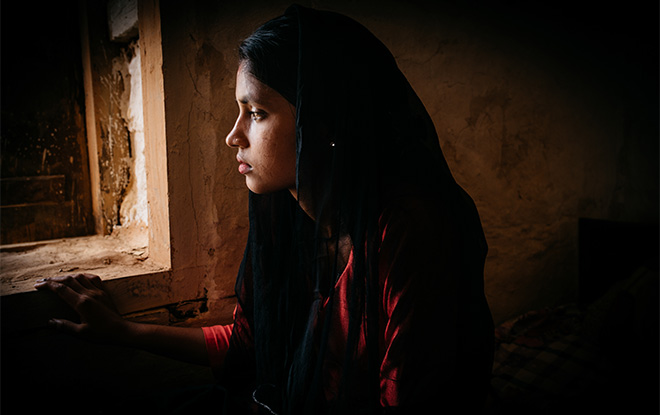
This image taken in Nepal, shows a young girl living in an area that has an extremely high risk of human trafficking. 16,000 girls a year are trafficked across the border from Nepal to India. She was sponsored by Share and Care which helps protect girls so they are less at risk of being trafficked.
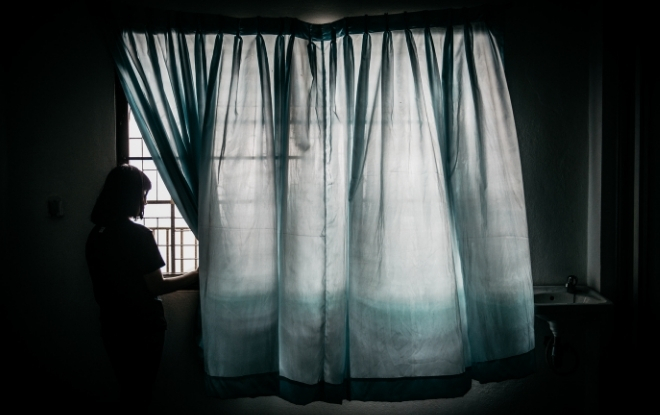
This girl was sold and trafficked when she was very young. She has recently been released and is working with Tearfund and Hagar as she integrates back into life.
Nikki says it’s up to us that have a voice to do something about it.
“It is absolutely vital, because survivors of human trafficking, often have no voice. I feel so strongly about this. The least we can do is hear their story and be their voice. By telling their stories, being their advocate, lobbying for a world without human slavery and supporting organisations like Tearfund, you are actively working against human trafficking,” says Nikki.
“Human trafficking is a devastating crime, socially, economically, emotionally and physically. It’s exploitation at its worst, “says Nikki.
Nikki says, putting a face to this story is so important.
“It’s very powerful to put a face to human trafficking through photography. An image takes the issue straight into someone’s heart. It invites them to imagine what it would be like if the person in the photo was their daughter, their cousin, their niece or their mother. Something profoundly changes when the broader issue of human trafficking has a face, a story and a name,” she says.
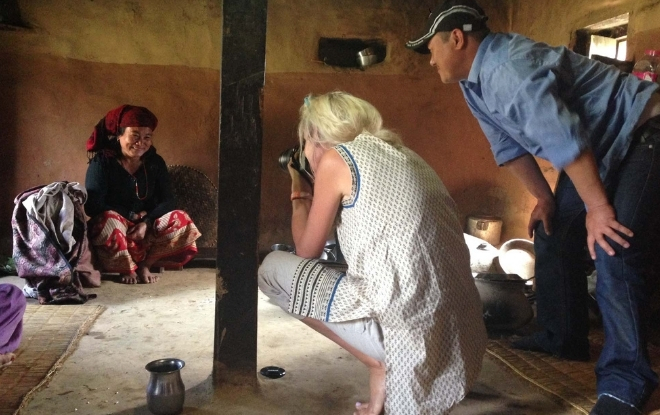
Nikki taking photos of Setimaya.
Nikki says her job is to create content that gives the people dignity and portrays them as survivors, not victims.
“I want to capture their beauty and not just their victimhood. I want to give them a chance to speak up and not be ashamed for what they have been through.”
*Name changed for protection